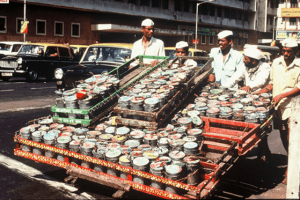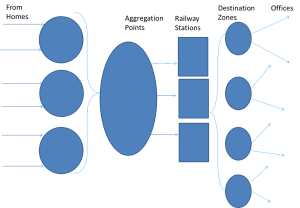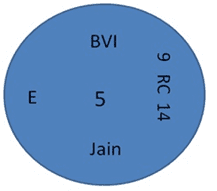In an era where many cannot imagine an efficient supply chain operating without the benefit of technology, Mumbai India has an example of a lean, just-in-time, 99.99 percent accurate supply chain operating without any form of technology. If you have seen the movie The Lunchbox (a good movie, but it starts slow) you have seen an instance where one of those very rare mistakes is at the heart of an important plot twist.
In India, “tiffin” is a packed lunch typically prepared for working Indian men by their wives after they have left for work. These tiffins are delivered by the dabbawalla, of whom almost 50 percent are illiterate. This supply chain delivers home cooked food to the office in time for lunch, and then returns the empty tiffin-boxes by the end of the working day. In a crowded city like Mumbai where merely boarding a local train is a huge challenge, toting a bulky tiffin carrier and delivering it on time is a daunting task.
Started in 1890, today 5,000 dabbawallas serve 200,000 customers in Mumbai. This involves 400,000 last mile transactions per day (including the return of empty tiffin carriers) with an error rate of 1 in 16 million transactions. This high rate of dependability earned this supply chain a six sigma designation and an ISO 9001 accreditation.
Dabbawalls earn $125 a month and charge $6 per month per customer. The dabbawalla supply chain combines baton relay and sortation, hub to hub moves, and hub and spoke deliveries. Around 8:30 am to 9:30 am dabbawallas collect tiffin boxes from their customer’s homes. Each dabbawalla is responsible for 30-35 tiffins in his area.
From 9:30 am to 10:30 am the sorting of the tiffins takes place at aggregation points outside the railway station. Once sorted into tiffin carriers, the tiffins are loaded on the appropriate trains.
From 10:34 to 11:20 am the inbound journey to office workplaces begins.
From 11:20 to 12:05 pm unloading is done at the destination station, and another area/building destination sort occurs.
By 12:30 – 1:00 pm all the tiffins get delivered. A similar reverse supply chain is followed between 1:30 pm to 5:30 pm to get empty tiffin boxes back home.
| Supply Chain of Dabbawallas from Source to Destination |
India is a country where people are very particular and sensitive about their food habits. For example, many Hindus are vegetarians and yet non-vegetarian food to a Jain would be considered heinous. Thus, a coding system is meticulously followed in order to avoid any mistakes involving interchange of lunch boxes.
An example of the coding system is shown above. Here is how to interpret the symbol:
- BVI: Borivali, a suburb in Mumbai. A pick up station.
- 9 RC 14: Code for dabbawallas at destination. This user code is different for each customer
- RC: Raheja Chambers, name of a building or office at the destination
- 14: Floor number
- E: Code for the dabbawalla at the destination railway station.
- Jain: Name/Surname of the customer – Not Mandatory
The principles that dabbawallas follow to make their supply chain efficient:
- Value Time – Dabbawalls don’t wait for unprepared tiffin boxes for more than 2 minutes; if they do, the downstream supply chain will be adversely affected. If a customer becomes a bottleneck in the supply chain for three consecutive days their services are terminated.
- Value Customer Service – The shelf life of the lunch boxes is just 4-5 hours, if it is not delivered on time food goes waste.
- A minimal dependence on technology – The dabbawallas are now using Web technology and SMS for orders, but for the most part this is a manual operation. It relies on manual operations carried out on trains, cycles, wooden carts by barefoot men.
- High visibility and transparency – The dabbawalla-system ensures that all the dabbawallas understand exactly what is happening and when — to the minute. If certain deadlines and hand-offs are missed, people don’t eat. It’s as simple as that.
The dabbawallas organization is an outstanding example of efficient logistics. It is simple, relies on unmatched teamwork, has a low operating cost, and delivers almost 100 percent customer satisfaction.
Neelam Singh is an analyst working for ARC Advisory Group covering supply chain management from Asia.




















Leave a Reply